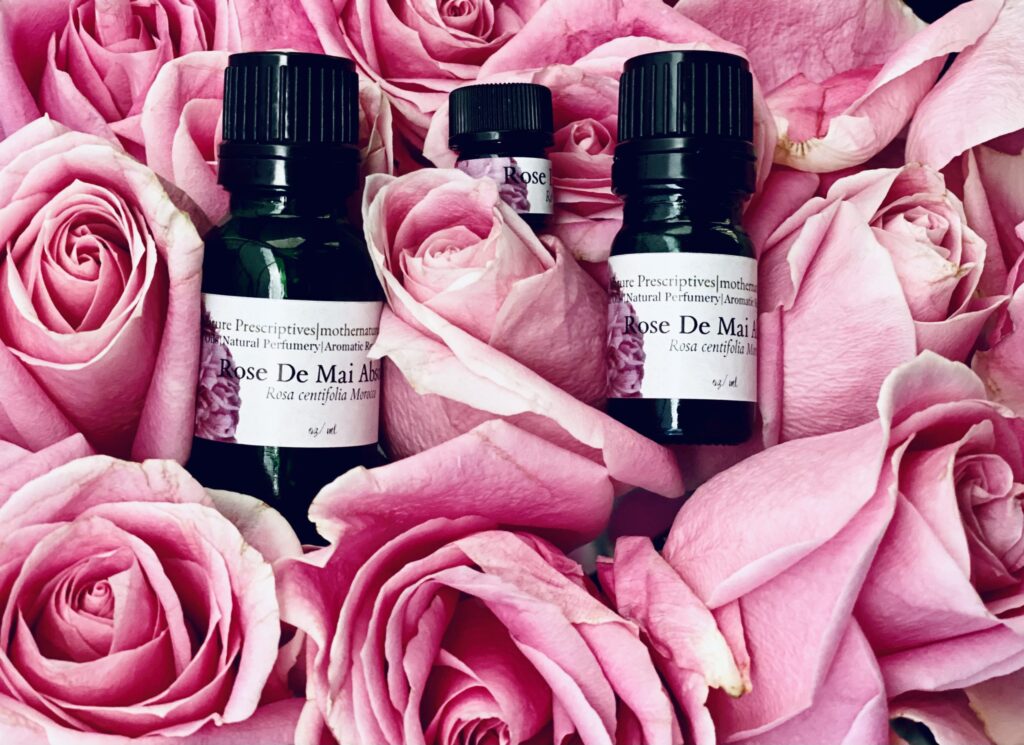In the world of essential oils, few are as revered and cherished as rose essential oil. Known for its exquisite fragrance and luxurious feel, rose oil has been used for centuries in perfumery, skincare, and traditional medicine. But beyond its enchanting aroma, rose essential oil boasts a wealth of therapeutic benefits, making it a powerhouse in natural wellness. From uplifting the mind to fighting bacteria and soothing inflammation, rose oil is a true multitasker.
Let’s dive into the incredible benefits of this precious oil.
1. Rose Essential Oil as a Natural Antidepressant
In today’s fast-paced world, stress, anxiety, and depression are increasingly common. Rose essential oil offers a gentle yet effective way to support emotional well-being. Its sweet, floral scent has been shown to have a profound impact on the nervous system, helping to alleviate feelings of sadness, anxiety, and stress.
- How it works: The aroma of rose oil stimulates the release of dopamine and serotonin, the “feel-good” neurotransmitters in the brain. This can help elevate mood, reduce tension, and promote a sense of calm and relaxation.
- How to use: Add a few drops of rose essential oil to a diffuser to fill your space with its uplifting scent. Alternatively, mix a drop or two with a carrier oil and apply it to your wrists or chest for a personal aromatherapy experience.
Studies have even shown that rose oil can be as effective as some pharmaceutical antidepressants in reducing symptoms of anxiety and depression, making it a natural alternative for those seeking holistic solutions.
2. Rose Essential Oil as an Antibacterial Agent
Rose essential oil isn’t just a pretty scent—it’s also a potent antibacterial agent. Its natural compounds, such as citronellol and geraniol, have been found to inhibit the growth of harmful bacteria, making it a valuable tool for maintaining hygiene and preventing infections.
- How it works: Rose oil disrupts the cell membranes of bacteria, effectively neutralizing them. This makes it useful for treating minor cuts, wounds, and skin infections.
- How to use: Dilute rose essential oil with a carrier oil (like coconut or jojoba oil) and apply it to the affected area. You can also add a few drops to homemade cleaning solutions to disinfect surfaces naturally.
Whether you’re dealing with acne, a minor scrape, or simply want to keep your home germ-free, rose oil’s antibacterial properties make it a versatile addition to your wellness toolkit.
3. Rose Essential Oil as an Anti-Inflammatory
Inflammation is at the root of many health issues, from joint pain to skin conditions like eczema and rosacea. Rose essential oil’s anti-inflammatory properties can help soothe irritation and reduce redness, making it a go-to remedy for both internal and external inflammation.
- How it works: Rose oil contains compounds that inhibit the production of pro-inflammatory cytokines, reducing swelling and discomfort.
- How to use: For skin inflammation, mix a few drops of rose oil with a carrier oil and gently massage it into the affected area. For internal inflammation, consider consulting a qualified aromatherapist about safe ingestion methods (though this should always be done with caution and professional guidance).
Rose oil’s ability to calm inflammation also extends to its use in skincare, where it helps reduce redness and promote a clear, glowing complexion.
4. Additional Benefits of Rose Essential Oil
While its antidepressant, antibacterial, and anti-inflammatory properties are standout features, rose essential oil offers even more benefits:
- Hydrates and rejuvenates skin: Rose oil is a favorite in skincare for its ability to lock in moisture and improve skin elasticity.
- Supports hormonal balance: Its soothing properties can help alleviate symptoms of PMS and menopause.
- Promotes restful sleep: Diffusing rose oil before bed can create a calming atmosphere, helping you drift off more easily.
How to Choose and Use Rose Essential Oil
When selecting rose essential oil, quality matters. Look for 100% pure, therapeutic-grade oil, preferably steam-distilled from Rosa damascena or Rosa centifolia roses. Due to the labor-intensive process of extracting rose oil, it’s one of the more expensive essential oils, but a little goes a long way.
Here are a few simple ways to incorporate rose oil into your daily routine:
- Add 2-3 drops to your bath for a luxurious, relaxing soak.
- Mix with a carrier oil for a soothing massage blend.
- Use in DIY skincare recipes like facial serums or toners.
- Diffuse to create a calming, uplifting atmosphere in your home.

Rose essential oil is more than just a fragrant luxury—it’s a natural remedy with profound benefits for the mind, body, and spirit. Whether you’re seeking emotional support, fighting off bacteria, or soothing inflammation, this versatile oil has something to offer. Its timeless beauty and healing properties make it a must-have in any essential oil collection.
So, the next time you inhale the delicate scent of rose oil, remember: you’re not just enjoying a beautiful aroma—you’re tapping into centuries of natural wisdom and healing. Embrace the power of rose essential oil and let it transform your wellness journey.
Disclaimer: Always consult a healthcare professional before using essential oils, especially if you are pregnant, nursing, or have underlying health conditions.

